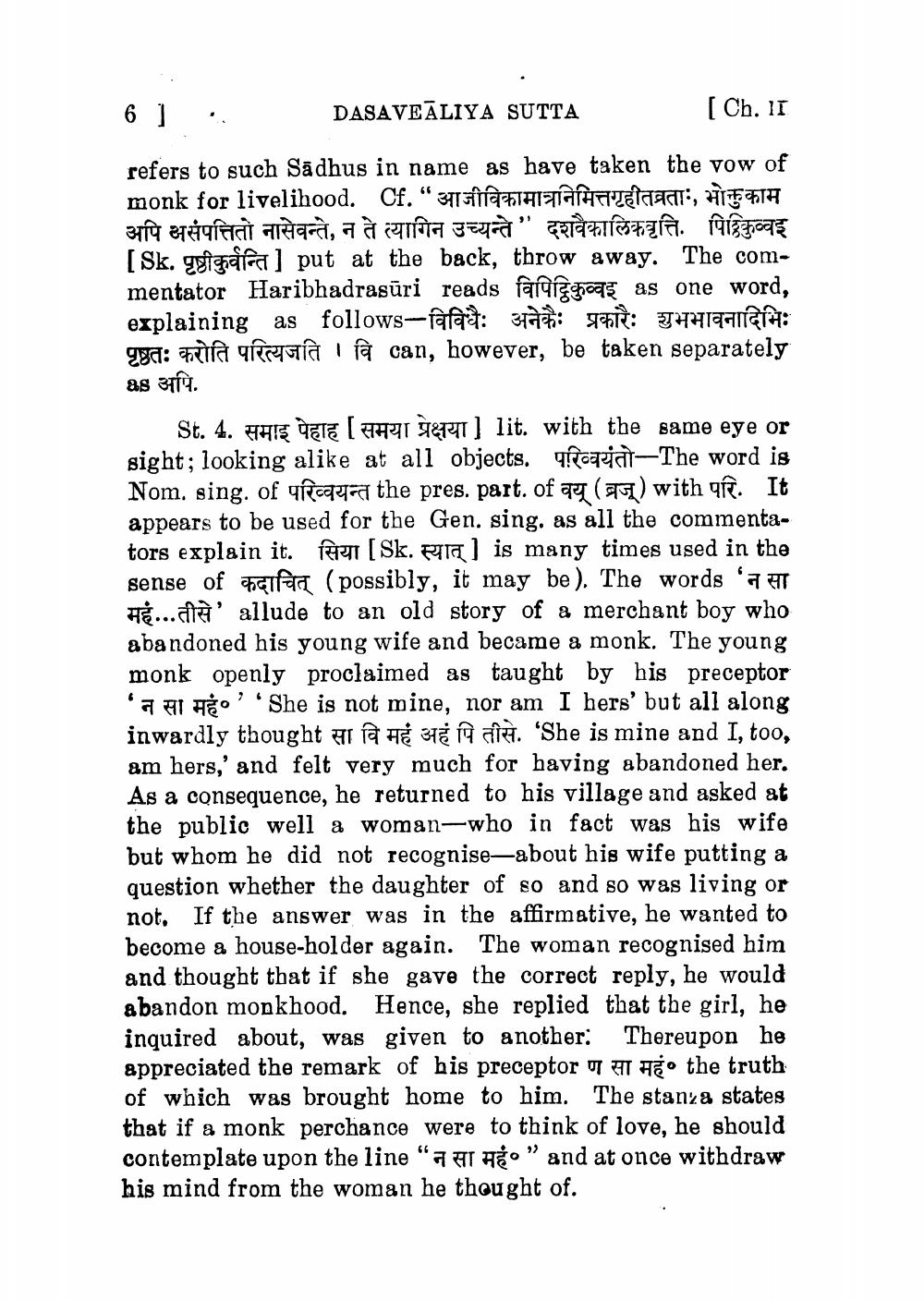________________
6 ]
DASAVEALIYA SUTTA
[ Ch. II
refers to such Sadhus in name as have taken the vow of monk for livelihood. Cf. " आजीविकामात्रनिमित्तगृहीतव्रताः, भोक्तुकाम अपि असंपत्तितो नासेवन्ते, न ते त्यागिन उच्यन्ते " दशवैकालिकवृत्ति. पिडिकुव्वइ [Sk. if put at the back, throw away. The commentator Haribhadrasuri reads far as one word, explaining as follows - विविधैः अनेकैः प्रकारैः शुभभावनादिभिः g: arifa Rafa can, however, be taken separately as अपि.
St. 4. समाइ पेहाह [ समया प्रेक्षया ] lit. with the same eye or sight; looking alike at all objects. -The word is Nom. sing. of परिव्वयन्त the pres. part. of वयू (ब्रजू ) with परि. It appears to be used for the Gen. sing. as all the commentators explain it. सिया [ Sk. स्यात् ] is many times used in the sense off (possibly, it may be). The words '
76
... allude to an old story of a merchant boy who abandoned his young wife and became a monk. The young monk openly proclaimed as taught by his preceptor She is not mine, nor am I hers' but all along inwardly thought सा वि महं अहं पि तीसे. 'She is mine and I too, am hers,' and felt very much for having abandoned her. As a consequence, he returned to his village and asked at the public well a woman-who in fact was his wife but whom he did not recognise-about his wife putting a question whether the daughter of so and so was living or not. If the answer was in the affirmative, he wanted to become a house-holder again. The woman recognised him and thought that if she gave the correct reply, he would abandon monkhood. Hence, she replied that the girl, he inquired about, was given to another: Thereupon he appreciated the remark of his preceptor the truth of which was brought home to him. The stanza states that if a monk perchance were to think of love, he should contemplate upon the line "I" and at once withdraw his mind from the woman he thought of.
6




